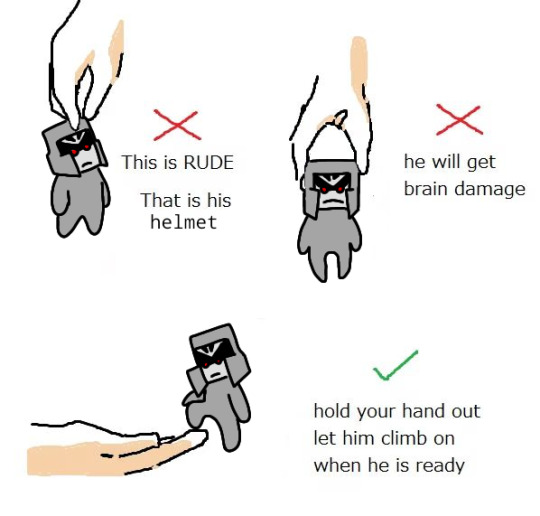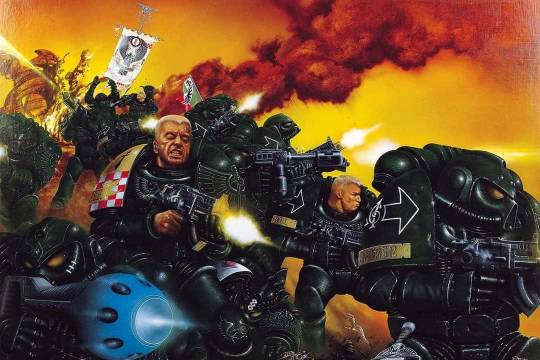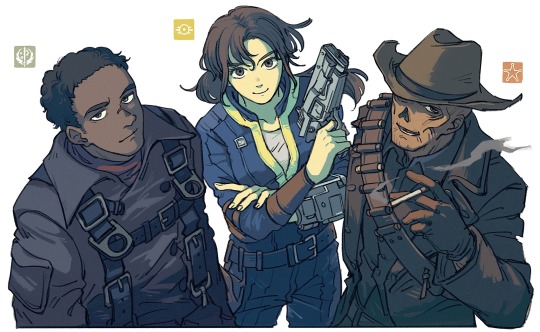Text
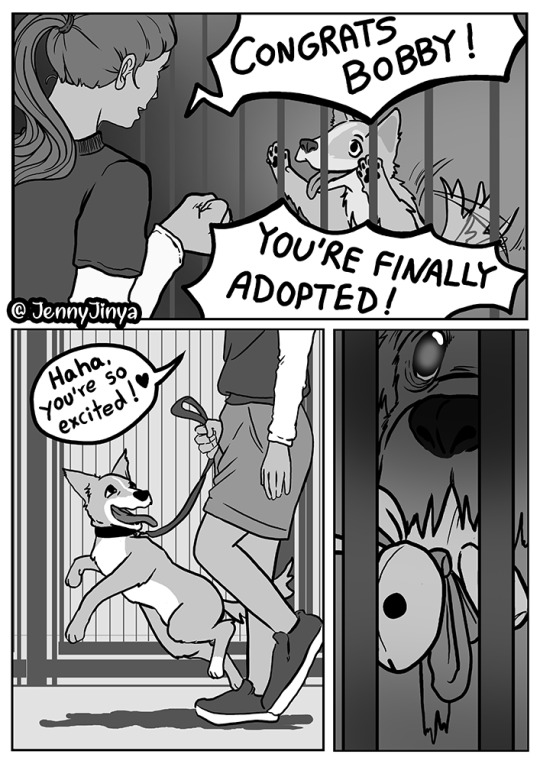

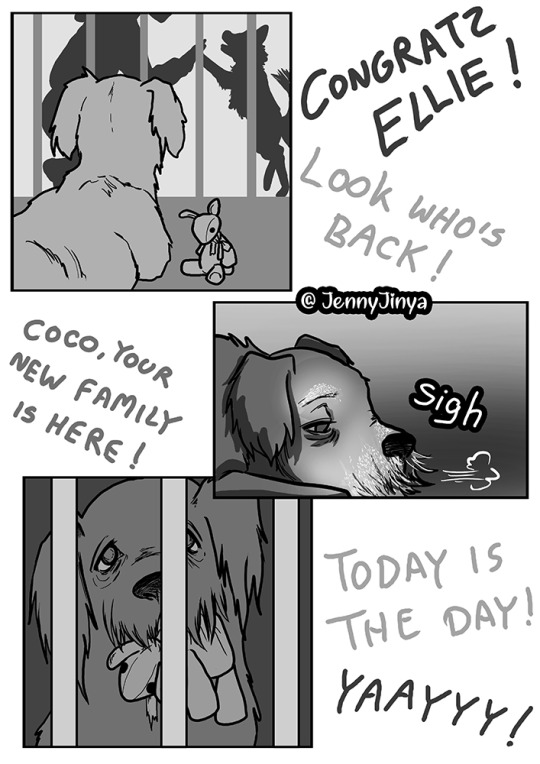
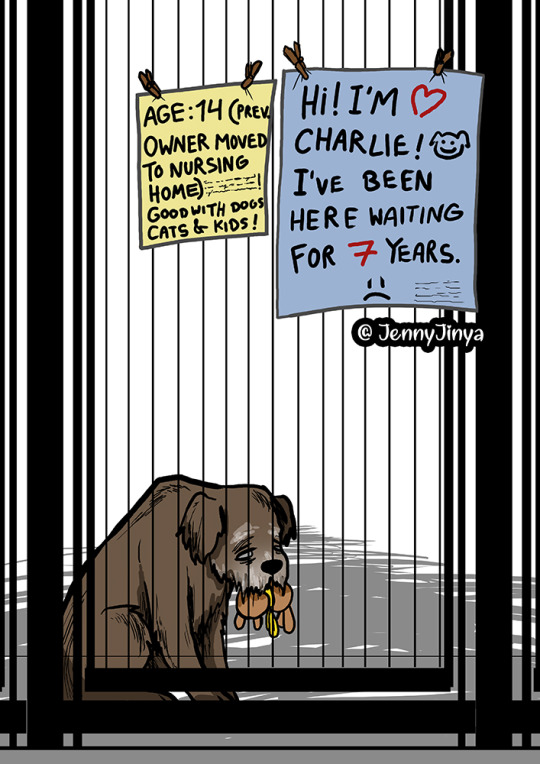
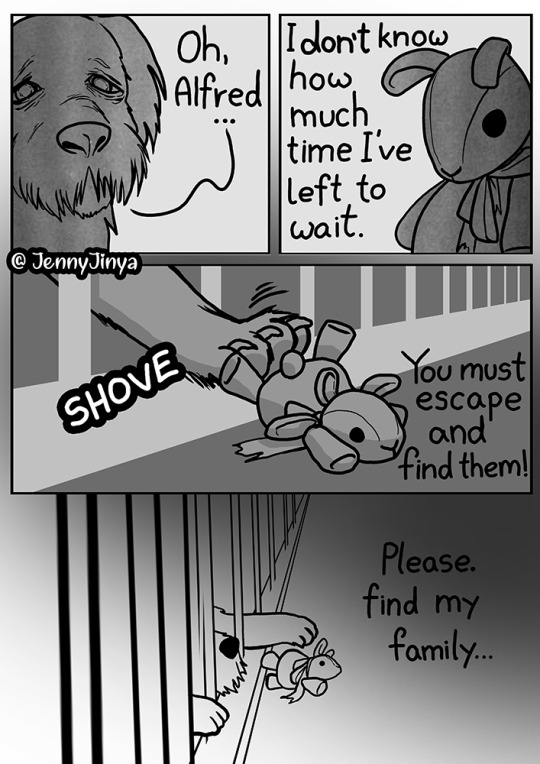
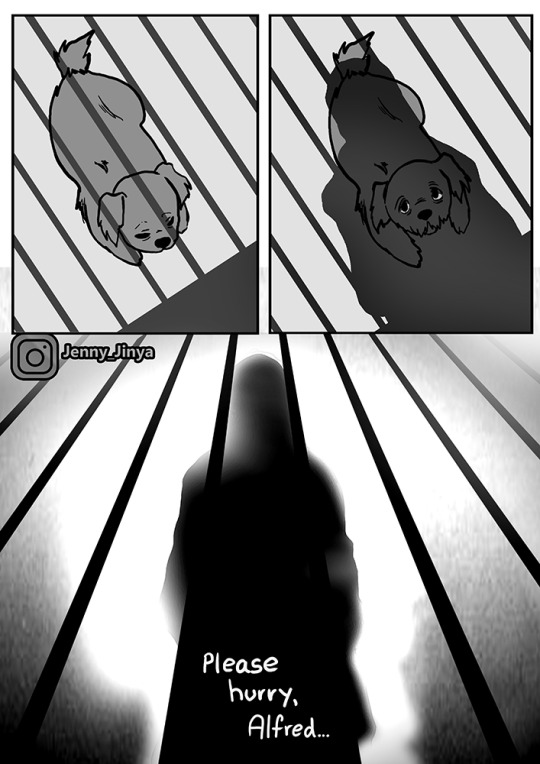
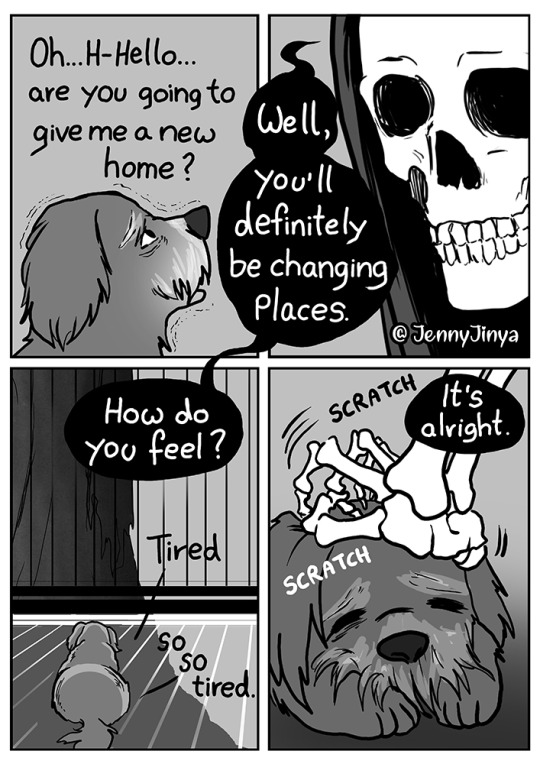
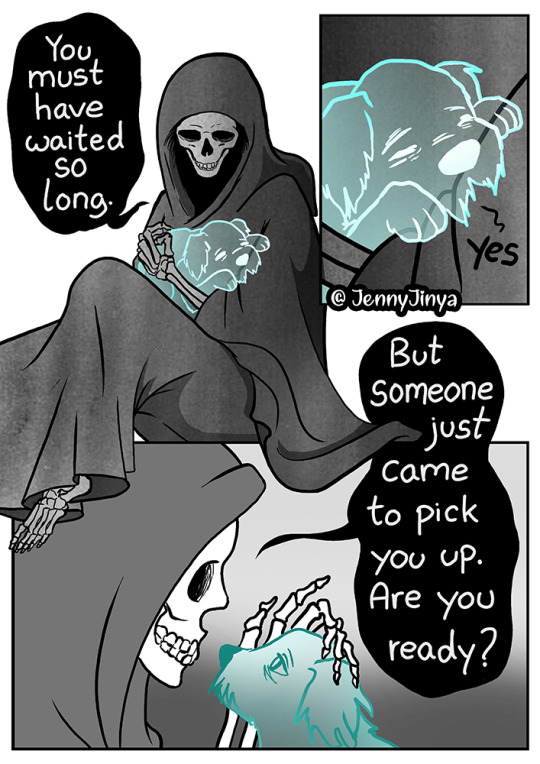
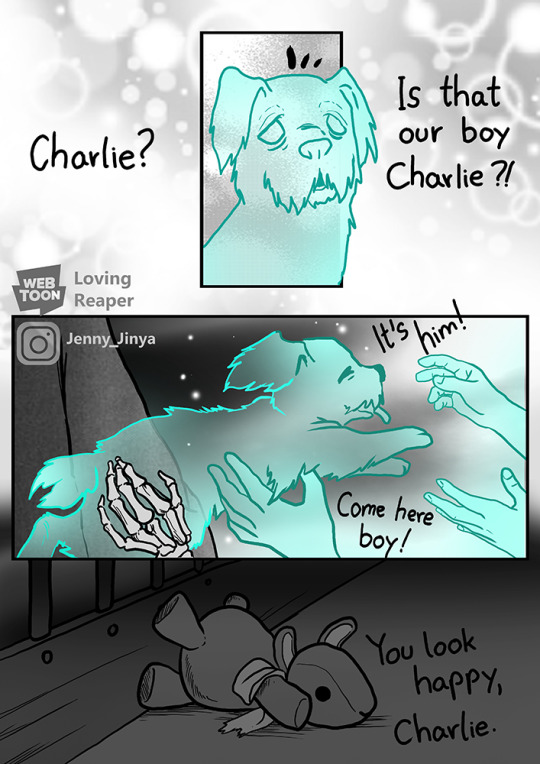
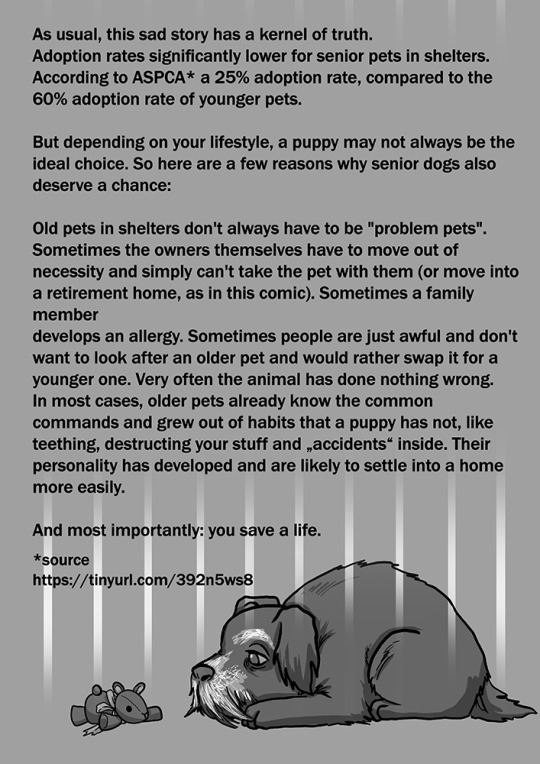
TW: Animal Death / Death
Senior pets have a hard time getting adopted. The likelihood of adoption is only 25% compared to 60% for a younger dog. Unfortunately, this is often due to prejudice. I want to raise awareness with this comic (and also get back to my roots, which I haven't really managed to do yet). But I want to start uploading more regularly again. Thank you for your patience so far.
4K notes
·
View notes
Text
stealing content from twitter because there is NO WAY I'd get away with putting this on our twitter account but OH MY GOD
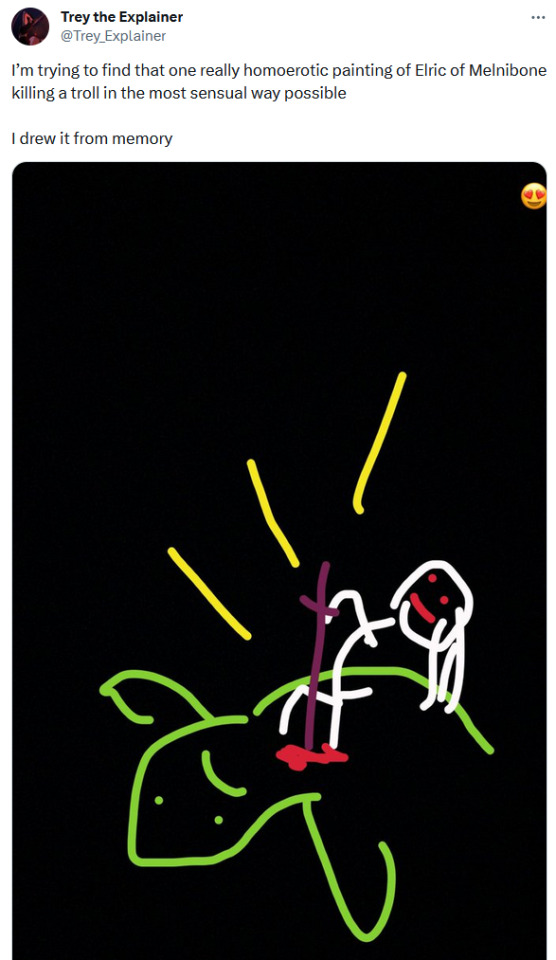
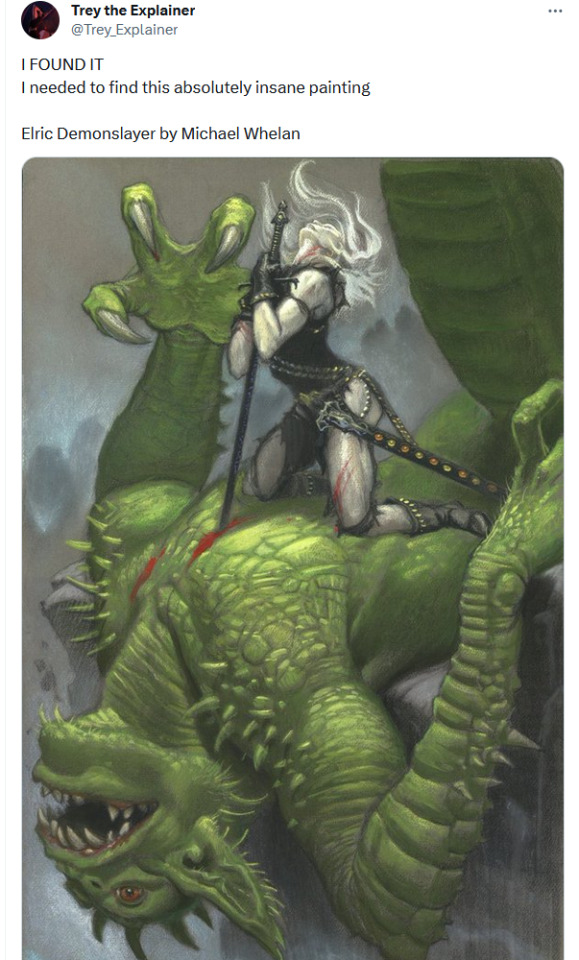
5K notes
·
View notes
Text
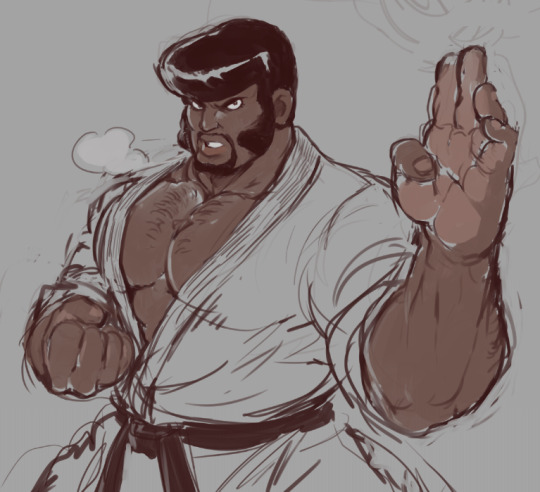
66 notes
·
View notes
Note
Could I ask where dungeons of the kind in D&D came about? Like they’re a cultural icon now, but I don’t understand their origins very well
The dungeon crawl is a pretty standard trope in 1960s and 1970s sword and sorcery fiction and its near ancestors. A lot of ink has been spilled about how Dungeons & Dragons has become so creatively insular that it's basically emulating itself, and while there's some truth to that, the claim that dungeon crawls are part of that is a misconception. That bit is lifted more or less directly from the contemporary literature which original flavour D&D was inspired by – modern commentators tend to miss that because nobody reads sword and sorcery anymore. If you look at Fritz Leiber, Jack Vance, Robert Howard, you'll see dungeon crawls aplenty; Conan the Barbarian* went on not a few!
Of course, that just kicks the can down the road a bit: if Dungeons & Dragons got the dungeon crawl from 1960s and 1970s sword and sorcery fiction, where did they get it from? That's a question I'm less qualified to address, since literary history isn't my area. I know there are several students of early to mid 20th Century popular fiction following this blog, though; perhaps a qualified party can weigh in?
* Yes, I'm aware that Conan the Barbarian was 1930s; I'm including him in the "near ancestors" of 1960s sword and sorcery fiction
3K notes
·
View notes
Text

Transformers One isn't changing the established lore y'all because there is no established lore
4K notes
·
View notes
Note
Not asking that one blog because it's more of a idle wandering than actual ask, but what are currently the most popular setting-neutral games? Like the ones that I see invoked most often are Savage Worlds and FATE, with GURPS being the classic, but am I missing something?
Like absolutely neutral games, not families of related games like PbtA or hacks of Into the Odd or 5E for everything
I do think it's probably Fate but I think that's more to do with the fact that Evil Hat produces a steady stream of new Worlds of Adventure supplements which give people something to play around with. I think Genesys and Cypher also count and are pretty big. In fact, given the fact that Monte Cook's name carries a lot of weight, I might go as far as to say that it's probably Cypher at the moment. Like, obviously Genesys and Cypher both started as systems built for specific games, but they have since been made into generic toolkit systems. And yeah, Savage Worlds, absolutely.
There's also Lumen and Caltrop Core but they're more known within the indie side and I think those might be more on the side of "frameworks for building games" rather than "setting neutral games," but I will admit that I am not intimately familiar with them. Actually I should give them a more in-depth look, like I've read a bunch of games that use them but I should actually delve deeper into the bones of those games.
And yeah I think it's good to distinguish between actual setting neutral games (even though the systems themselves bring some assumptions but that's besides the point) which are like here are the rules to run it, some assembly required, and games that are frameworks for building your own games, as you outlined in your ask. :) Like, PbtA is not a setting neutral game, it's a framework for building games. Same with FitD and d20. (Although there are arguably some setting neutral applications of the d20 system, like True20, which would absolutely count for this question, but I think True20 is somewhat past its prime.)
This was a nice ask, it got me thinking of how there are lots of cool games :)
174 notes
·
View notes
Photo
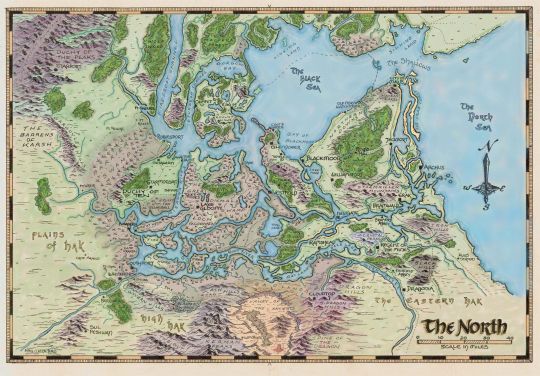
Map of Blackmoor, campaign setting of Dave Arneson, co-creator of Dungeons & Dragons.
37 notes
·
View notes
Text
Suddenly struck with a need to explain to you how boat pronouns work (I work in the marine industry).
When you're talking about the design of the boat, you say "it".
When the boat is still being built, your say "it".
When the boat is nearing completion, you can say "it" or "she".
When the boat is floating in the water you probably say "she", unless there is still a lot of work to be done (e.g. no engine yet) then you say "it".
When the boat is officially launched and operating, you say "she". If you continue to say "it" at this point you are not incorrect but suspiciously untraditional. You are not playing the game.
If you are referring to a boat you don't really know anything about you may say "it" ("there's a big boat, it's coming this way"). But if you know its name, it's probably "she" ("there's the Waverley, she's on her way to Greenock").
If you are talking about boats in general, you say "it" ("when a boat is hit by a wave it heels over")
If you speak about a boat in complimentary terms, it's "she" ("she's a grand boat"). If you are being disparaging it may be it, but not necessarily ("it's as ugly as sin", "she's a grotty old tub").
If she has a boy's name, she's still she. "Boy James", "King Edward", "Sir David Attenborough"? The pronoun is she.
If it's a dumb barge (no engine), you say it. But if it's a rowing boat (no engine), you say she.
I hope this has cleared things up so that you may not be in danger of misgendering floating objects.
86K notes
·
View notes
Text
This body doesn't fit me right. It never has
Too small
Too delicate
I cannot carry you in my arms when you are weak
I cannot wrap my body around you when you are tired
I cannot bear my teeth, bite, scratch, kill the world that hurts you.
That hurts us all every day.
This body doesn't fit me right
I am a protector and it is not.
13 notes
·
View notes
Text
The world's unluckiest TTRPG player whose only frames of reference for TTRPGs are D&D 3e, Hero System, and Rolemaster: Yeah I like the simplicity of D&D. Indie RPGs are just too complex for me.
148 notes
·
View notes

